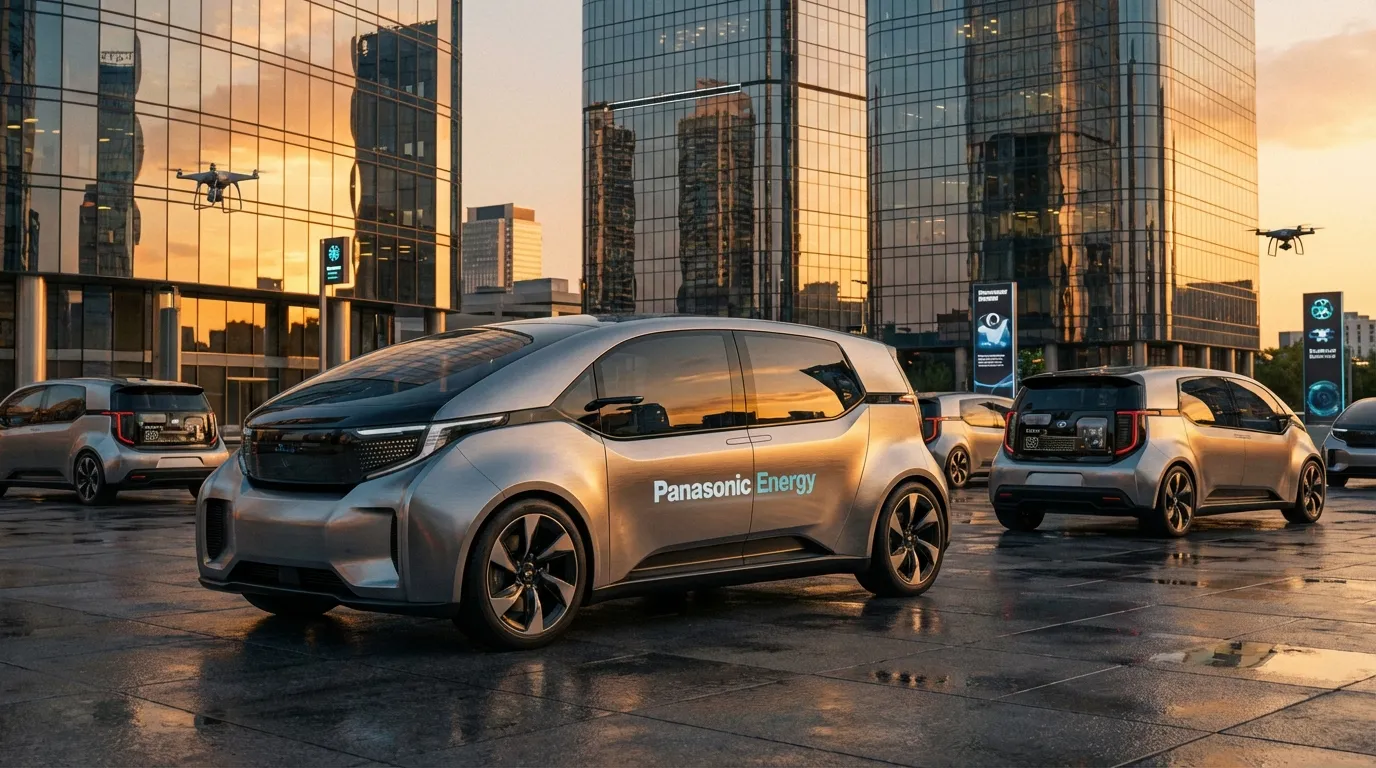The future of urban mobility has just taken a giant leap toward tangible reality. Panasonic Energy confirmed a multi-year strategic agreement to supply its renowned lithium-ion batteries to Zoox, Amazon’s autonomous vehicle subsidiary. This move is not just a commercial transaction, but a clear signal that the era of robotaxis is about to scale massively, combining the most advanced autonomous driving technology with Japanese energy reliability.

The Technology Behind Safe Autonomy
Beginning in early 2026, Panasonic will start delivering its 2170 model cylindrical lithium cells to power the Zoox fleet. These batteries are known in the market for offering superior energy density, which is crucial for vehicles operating almost non-stop in complex urban environments. For those following the evolution of autonomous systems, like the AI revolution that learns to drive autonomously in the Xiaomi SU7, it is known that the energy demand of a digital brain on wheels is immense.
Zoox stands out by creating a “purpose-built” robotaxi, meaning it was designed from the ground up to be autonomous, lacking a steering wheel or pedals, thus offering a completely new passenger experience. Serial production has already begun in Hayward, California, and the ride-hailing service is already operational in Las Vegas. The choice of Panasonic aims to ensure these vehicles have maximum possible availability, something essential when discussing the efficiency of electric fleets and the myth about battery replacement rates, which modern technology is debunking.
The Future of Urban Mobility and U.S. Expansion
The robotaxi market in the United States is projected to explode. According to Grand View Research reports, a compound annual growth rate (CAGR) of over 70% is expected through 2030. Cities like San Francisco, Los Angeles, and Miami are at the forefront of this transformation, driven by progressive urban policies. It’s a futuristic scenario reminiscent of disruptive innovations, such as the Toyota Kids Mobi concept that seems straight out of Black Mirror, where AI takes full control of transportation.
Panasonic isn’t just supplying parts; it is enabling an ecosystem. With forecasts predicting the global robotaxi market to exceed $50 billion by the end of the decade, the partnership with Zoox positions the Japanese company at the crucial nexus of mobility innovation. Kazuo Tadanobu, CEO of Panasonic Energy, emphasized that Zoox is “truly unique” and that this collaboration represents a fundamental step toward a more sustainable society. This high-tech integration is comparable to other major industry moves, such as Google expanding the frontiers of AI and energy to support new technologies.
Trust and Safety in Record Numbers
The decisive factor for Zoox choosing Panasonic was undoubtedly safety. As of September 2025, Panasonic Energy had already supplied approximately 20 billion battery cells for EVs globally. This equates to powering about 4 million electric vehicles without a single recall attributed to battery issues. In an industry where trust is the most valuable currency, this track record is unbeatable.
The cells will initially come from Japan, but there are concrete plans to utilize Panasonic’s new factory in Kansas, strengthening the North American supply chain. While luxury brands focus on raw range for long-distance travel, as seen in the Mercedes CLA electric aiming to dethrone the Tesla Model 3, Zoox and Panasonic are focusing on durability and safety for intense urban use, redefining how we move through the cities of the future.
